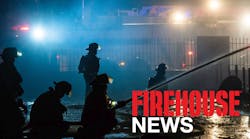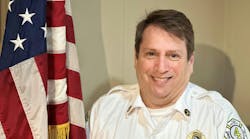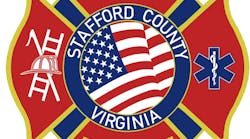There always have been isolated incidents between individual police officers and firefighters, but these events are newsworthy because they are so few and far between. The truth is that most fire and police departments routinely work together in close cooperation, with each side respecting and understanding what the other has to do.
To briefly recap the incident that touched off the storm, a volunteer fire chief in a Maryland suburban area ordered an interstate highway to be shut down in one direction so that additional apparatus could reach the scene without danger or delay. Three people were trapped in a car waiting to be extricated, including one with a possibly traumatic injury. A state trooper ordered the chief to open the road and arrested him when he refused. The chief was acquitted of all charges when it came up in court, but the judge ordered both sides to work out their differences because of ambiguous language in a state law that defines the lines of authority between fire and police.
My impression in talking to those involved (including a state police captain) is that this was a case of one officer getting out of line and exceeding his authority. He was not carrying out official policy and I sensed that the police were embarrassed by the incident and the media attention it drew.
In the past month, I've heard more weird stories from around the country - like the EMT who was arrested by a police officer for refusing to move an accident victim before he was stabilized. A policeman threatened to start arresting volunteer firefighters if more than two showed up at an accident scene in cars with blue lights flashing. Another demanded that a fire company on a mutual aid call leave the scene of an accident because they had crossed out of their own county. Again, I emphasize that these incidents are unusual and not the normal relationship that exists between firefighters and police officers.
Nevertheless, it does point to the need for clearly understood lines of authority at various types of incidents so there can be no misunderstandings. Some states have laws that precisely define who's in charge; others have none or are somewhat vague in drawing the lines. In many local jurisdictions, police and fire departments have established their own guidelines based on practical experience and they seem to work quite well.
Most of the time, logic and common sense prevail. When fire-rescue operations are top priority - a major fire, caring for accident victims, handling a hazardous materials incident - the fire commander is in charge until the fire-rescue problem is under control. If it's primarily a law enforcement problem - a barricade situation, a robbery or an assault in progress - fire units stand by (out of range) and wait for orders from the police. No one wants firefighters plunging into the middle of a gun battle or violent disturbance.
At times it can get murky, such as the infamous Philadelphia shootout, when a block of row houses burned to the ground as police prevented firefighters from taking any action to stop the fire from spreading beyond the danger zone. An act of terrorism also muddles the picture because the fireground is a crime scene that will draw state and national law enforcement agencies as well as the local police. The obvious solution is to pre-plan a command structure and define the lines of authority to deal with these situations.
While fire officers have to be aware of the massive traffic jam that results when they close a major highway, the fire chief in the Maryland case clearly was justified in stopping traffic on the interstate. "Had the incident occurred in this country, it would have been the police officers who would have been arrested by the fire officers," writes Deputy Chief Luke Hartog, of the Krugersdorp Emergency Services in South Africa. He reports that fire chiefs in his country have police power and the authority to arrest anyone who hinders a fire officer in carrying out his duties (see Forum, page 10).
There is no such federal law in the United States. However, Rep. Tony Hall (D-Ohio) and Rep. Frank Wolf (R-Virginia) have introduced the "Roadside Emergency Safety Act" in Congress. It calls for the Department of Transportation to conduct a nationwide study of highway emergency safety to determine the scope of the problem and what can be done at the federal level to protect fire-rescue and police personnel at accident scenes and other roadside emergencies.
Overlooked in the emotional response to this incident is that fact that police officers as well as fire-rescue personnel have been killed and injured on the scenes of accidents. Indiana just passed a state law requiring a one-lane buffer zone around any accident on a road with more than two lanes. It's the direct result of several fatal accidents in which state troopers were struck by passing cars.
If your department does not have guidelines covering the fire-police relationship, it makes sense to sit down with your local and state police to work them out. But stay cool and remember that every hour of every day, firefighters, ambulance crews and police officers are responding to emergency incidents and working together without any problems over who's in charge.
Hal Bruno, a Firehouse® contributing editor, is a retired political director for ABC News in Washington and served for 40 years as a volunteer firefighter.




